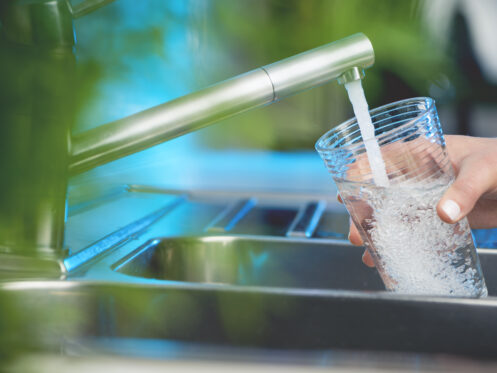Spring is right around the corner, so you’re probably getting ready to start your spring cleaning! If so, don’t forget about your pipes! Your plumbing system is one of the most important parts of your home, so you need to be sure that it’s working properly at all times. Whether you experienced any trouble during the winter season or not, spring can be just as damaging and unpredictable. To keep your plumbing prepared for the transition of the season, there are a few things you can do.
Get Your Plumbing Ready
- Check for leaks. Leaks can happen anywhere, which is why it’s important to thoroughly inspect your pipes and water fixtures. Look around your home. Make sure there is no water dripping out or around the connections, especially when a fixture is not in use. Some leaks may be hard to find, but you can usually spot the warning signs. If you find a leaky fixture or pipe, water pooling in places they shouldn’t be, or constantly hear running water, you should call a professional.
- Inspect your sump pump. Your sump pump may have overworked itself this winter to keep your basement flood free, which means it could be due for some maintenance. Make sure to fill the basin to the top with water, your sump pump should start immediately. If it doesn’t, then something needs repair. If you remove the basin, there’s a grate at the bottom that needs cleaning. It may also be worthwhile to have a plumber inspect your sump pump, as well as other water appliances.
- Clean your drains. Clogs are a nuisance for you and your plumbing, and they can happen anytime. It’s always a good idea to consistently clean your drains, as it can not only prevent clogs but bigger plumbing problems. Avoid chemical drain cleaners when cleaning the drains, as the chemicals used can eat away at your pipes and destroy expensive coatings on your sinks and counters. Hot water, dish soap, baking soda, vinegar, and citrus peels are all safe alternatives.
- Check your water heater. Besides the sump pump, spring is a good season to tune up your water heater. It’s recommended that you service your water heater every six months to ensure it functions properly. A water heater in need of maintenance, or worse, a damaged water heater, is at risk of bursting and flooding your basement. Make sure to flush the tank of any sediment deposits and debris that could have built up inside. An inspection can also help detect any potential problems before they get serious.
- Look for any winter damages. The winter season can be a lot on your home, which is why it’s a good idea to inspect for damages as soon as possible. The extreme cold, ice, and snow could have damaged your home’s exterior and plumbing. Check for any cracks, leaks, or broken connections which could have been caused by a frozen pipe. The longer a broken pipe is left untreated, the worse your plumbing can get, call a plumber right away if your plumbing is damaged.
- Inspect your basement plumbing. Not all of your plumbing is hidden inside the walls. While you’re busy inspecting your appliances and water fixtures, it’s important not to forget the basement plumbing, as well as what’s underneath your house. Check any exposed pipes for potential damage. If you notice wet spots, pools of water, or smell mold, you most likely have a leak that needs urgent repair.
Don’t Wait Until It’s Too Late
Nobody wants to deal with a plumbing catastrophe, but it can happen. That’s why proper plumbing maintenance is important, especially as you’re going from one wet season to another. Spring can be just as tough on your plumbing without the right preparation. Keep your home dry and your plumbing happy by scheduling an inspection by calling us at 503-715-2829 today.

